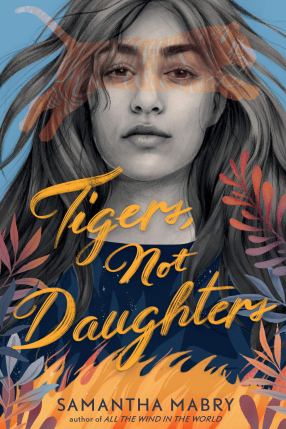
by Samantha Mabry
3/5 stars
If it weren’t for us, things would have turned out differently. If it weren’t for us, Ana wouldn’t have died two months later later and her sisters wouldn’t have been forced to suffer at the hands of her angry ghost.
The Torres sisters have been ripped apart by the death of their eldest and leader, Ana. They have retreated to their worlds, a complicated relationship and job in town, the pages of books, the comfort of animals, but they have been largely ripped apart by the tragedy. The street, including the boys next door who occasionally narrate, watch on as their father weeps in the street, as Jessica picks up the pieces of him. But things are spiraling out of control, and Anna’s ghost begins to appear, even if the sisters can only see her in glimpses. What is Anna trying to tell them?
This book takes on grief, especially for teenage girls in a raw, visceral way. This is not a grief I speak to, but Mabry made me feel its variations in Jessica and Iridian and Rosa. The anger. The isolation. The fear. The attempts to save and control. These girls have lost the one who grounded them–like a modern, grittier version of the March sisters after they lose Beth, trying to figure out their identity amidst this new reality.
Jessica was maybe the most interesting sister for me, maybe because she was the least internal, though there is a heartbreaking scene with Iridian and her father near the climax. All of these girls have been messed up by their sisters deaths in the own way. Jessica is the one who reacts by getting reckless with herself. But there was a heartbreak to all of these stories.
I do wish the supernatural angle had been leaned into just a little harder here. The glimpses we got were, I believe, to keep us rooted in a real world where something otherworldly was happening. But I would have liked to see even more of this. I didn’t feel the presence of Ana’s spirit in the narrative as much as I expected to, though I definitely felt her absence.
This is a quick read, and, while I do wish certain elements had been explored more, I don’t think this needed to be longer. Mabry tells her story, and she doesn’t waste words. She doesn’t wallow in the sadness of these girls. She explores their grief, but she documents their fight.
Buy on Bookshop.org (I may receive a commission from purchases via this link.)
Listen on Libro.fm


 By Matthew Quick
By Matthew Quick by Pittacus Lore
by Pittacus Lore